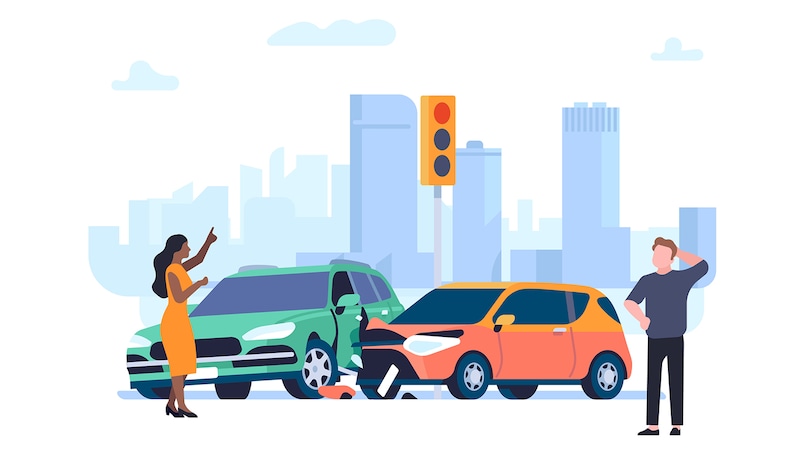Will a car accident affect your credit score?

Quick insights
- The total effect of a car accident on your finances can vary, but a car accident doesn’t directly affect your credit score.
- Some financial consequences of a car accident, such as new bills, could affect your credit score if they go unpaid.
- If you focus on paying your insurance premiums, medical bills and car repair costs, you can generally avoid negative impacts to your credit score after a car accident.
Dealing with the aftermath of a car accident can be a trying time, and the financial repercussions vary. A car accident in and of itself does not directly impact your credit score. Credit-related activities affect your score. Nevertheless, some financial situations could arise as a result of a car accident that could potentially impact your credit score.
Factors that can affect your credit score after a car accident
A car accident could indirectly impact your credit score in certain situations if new debts arise or if the resulting costs affect your budget.
Insurance premiums increase
When a car accident is reported to an insurance company, the accident becomes part of your driving record. Insurers evaluate that record when setting your insurance policy premiums. Whether or not you're deemed at fault in a car accident, your auto insurance rate may increase.
Maybe a higher insurance premium after a car accident causes you to miss those payments or other credit payments, such as loans and credit cards. Unfortunately, missing payments can have a negative impact on your credit score, as payment history is a significant factor in credit scoring. This is an example of how a car accident could indirectly affect your credit—by causing a situation in which bills become difficult to manage.
Medical bills
It’s a sad fact that car accidents can cause injuries. Medical bills for injuries can range wildly, as can the impact of medical debt on your credit score. Once medical providers turn over an overdue debt to a collections agency, the debt could appear on your credit report, but this depends on the situation. In some cases, unpaid medical debt following a car accident can have negative impacts on your credit score.
Car repair or new car bills
Savings and insurance coverage may not fully cover the cost of repairing or replacing a damaged vehicle. As a result, you might have to consider maxing out existing credit cards or applying for new car loans. Whether you’re facing car repair costs or new financing after a car accident, both can affect your credit.
Applying to finance a new vehicle generally requires a hard inquiry on your credit report. Moreover, if you’re approved for new financing, you may have new car bills. If the bills or their due dates are difficult to make on time, your credit score can drop.
Similar to new car bills, you may be able to arrange payment plans for car repair costs. This could still result in new monthly bills. If your budget isn’t fully prepared to manage new bills like that, or if you don’t have an emergency fund, you could miss payments and negatively impact your credit score.
Job status or income changes
Another way a car accident can indirectly affect your credit score is if it affects your job. You may have to adjust your hours or lose a job altogether. The effect on your income can change your budget and maybe your ability to pay bills, including those we mentioned above: insurance premiums, auto expenses and medical bills. In this way, job status and income changes can indirectly affect your credit score following a car accident.
In conclusion
After a car accident, there may be a lot to process, including the financial consequences, such as new bills. Unfortunately, like other debt, bills could affect your credit score if you fail to pay them. That’s because credit score is mainly influenced by credit-related activities, including your payment history.
If you anticipate financial difficulties, consider discussing your situation with creditors or seeking financial advice to explore available options. An emergency fund may also help prepare you for the financial aftermath of a car accident, particularly costs that you didn’t have or expect to have before. All in all, keeping track of your credit after a car accident might be a good idea.



